Médecins Sans Frontières New Zealand



This whakataukī encompasses the idea that when people work together and combine resources, we can all flourish.
For Médecins Sans Frontières, it is a reminder of the generosity of our supporters, and the expertise of our staff, which together mean we can successfully support communities.
This whakataukī was chosen by our Māori partners Deborah Harding and Tracey Poutama, who have been leading our staff in te reo and tikanga inductions.
MSF New Zealand Vision Statement
At MSF New Zealand
We care.
We act.
With courage, determination and perseverance.
For the people we assist, for our staff, our supporters and the world.
An international, independent medical humanitarian organisation Médecins Sans Frontières (MSF) is a global network of principled medical and other professionals working in teams, small and large, to respond to the medical needs of people affected by conflict, disasters and epidemics, and those excluded from healthcare. Our actions are guided by medical ethics and the principles of impartiality, independence and neutrality.
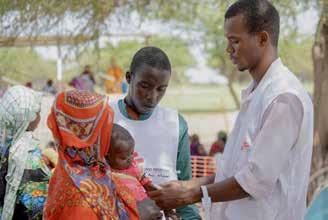
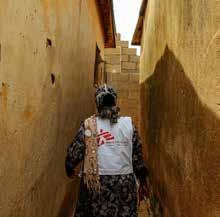

Matthew is a founding MSF New Zealand Trustee, and was appointed by the Board of MSF Australia in 2016.

He has worked for MSF in Afghanistan, Sierra Leone, Liberia, Sudan, Russia and South Africa, as a doctor, project coordinator and medical coordinator. He represented MSF Australia at the MSF International General Assembly, the highest governing body of MSF, from 2011 until 2017.
Matthew served on the MSF Australia Board from 2007 to 2010 and from 2015 to 2018, and as MSF Australia president from 2008 to 2010. He is now a public health medicine specialist working in Ōtautahi Christchurch, New Zealand, for the National Public Health Service, Te Whatu Ora, and has a Master of Public Health and a Diploma in Child Health.
Katrina was appointed founding Trustee to the MSF New Zealand Charitable Trust in 2016.
Katrina, a New Zealander with a nursing and midwifery background, began working with MSF in 2002 and has since worked in Afghanistan, Nepal, Yemen, Haiti and Sierra Leone as a nurse, midwife, hospital manager and field coordinator. From 2006 to 2009 Katrina worked in the Human Resources department of MSF Australia and she served on the MSF Australia Board from 2013 to 2019. In 2021, Katrina was re-elected to the MSF Australia Board by the Association and elected as President by the Board.
Katrina was a founding member of the Auckland support network group and now enjoys being an active member of the MSF New Zealand support network group. Katrina also managed the Refugee Health Screening Service in Auckland, which provides healthcare services to refugees and asylum seekers.
Beth is a non-practising lawyer with experience in government and private legal practice. She has undertaken one assignment for MSF and has been a member of the Board’s Governance Committee since 2011.
Since 2000 she has worked in international health and development assistance in varying roles for a number of organisations, including not-for-profits, universities and government agencies. Prior to that, Beth held several positions (legal, academic and in business) in Australia and whilst living overseas.
Beth is qualified in law and social work and has a BA (ANU), B Soc. Stud (Sydney), LLB. Beth is admitted to practise in the HCA and Supreme Courts ACT and NSW. In addition to being a founding MSF New Zealand Trustee, Beth served on the MSF Australia Board from 2013 until 2022.
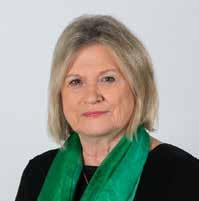
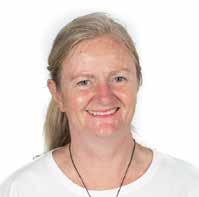
Trust Information
Charitable Trusts incorporation: 2637615
Registration date: 9 March 2016
Charities registration number: CC53189
Registration date: 17 March 2016
Trustees:
Katrina Marie Penney
Matthew Charles Reid
Maurine Elizabeth Hilton-Thorp
Settlor:
Médecins Sans Frontières Australia Limited
Registered Office: 118 Stone Wall Rise Maungatapere Whangārei 0179
Postal Address: PO Box 6241 Victoria St West Auckland 1142
Auditors: Crowe New Zealand Audit Partnership
Matthew Reid Chair of MSF New Zealand Katrina Penney MSF New Zealand Trustee Beth Hilton-Thorp MSF New Zealand TrusteeAs the chair of MSF New Zealand, I am pleased to share with you our Annual Report. In 2022, there were huge global and local shifts as the world further emerged from COVID-19 restrictions, and saw a devastating escalation of war in Ukraine.
Although they did not receive the same level of global attention, the protracted crises facing Afghan people, and Rohingya people in Bangladesh and other countries in the region, signaled huge needs for medical humanitarian aid.
In 2022, with the generosity of our supporters in Aotearoa, MSF New Zealand was able to continue our strong contribution towards MSF’s global medical projects.
An incredible total of $7.9 million was raised through fundraising activities. These funds supported MSF’s work in 11 countries: Afghanistan, Bangladesh, Chad, Kiribati, Lebanon, Malawi, Nigeria, Pakistan, Sudan, Ukraine and Yemen.
In the following pages of this report, you can see snapshots of the activities made possible by New Zealand donations in each of these countries. These summaries show the breadth of the work of MSF teams: from paediatric care responding to malnutrition and other health needs of children in the province of Herat, Afghanistan, to the comprehensive package of care we offered to women with cervical cancer in Blantyre, Malawi.
In addition, New Zealanders contributed their experience and skills to supporting our global projects. Our Field Human Resources team was able to support the departures of 21 New Zealand staff to 13 MSF projects during the year.
In order to achieve our core medical humanitarian work, in 2022 MSF New Zealand continued to focus our approach around putting patients first in the work we do. Alongside championing patient-centred care and regional partnerships in MSF, there are ongoing improvements to make to ensure our communications about our work always centres patients, their needs and agency.
As we report on 2022, I am extremely grateful for the support shown by New Zealanders for the work MSF does, and ultimately for the care you show for global communities. With your trust in us and your meaningful engagement with the needs that patients and their communities face, I know we will continue to develop the way we work with communities to deliver quality medical humanitarian aid in the years to come.
Matthew Reid Chair, on behalf of the Trustees MSF New ZealandMSF began working in the Pacific island nation of Kiribati in October 2022. Three New Zealand project staff members helped set up maternal and neonatal care services and training, which New Zealand donors helped fund. Here the team boards a plane in the capital Tarawa to the outer islands.
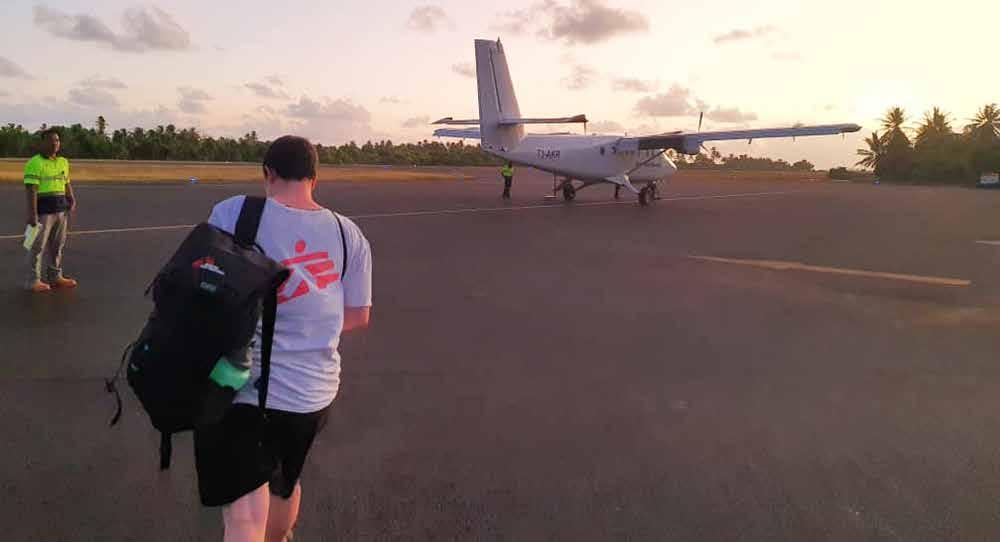
In 2022, MSF ran medical humanitarian projects in more than 70 countries. New Zealand donors supported work in 11 of those countries, while 21 New Zealanders worked in 13 MSF projects globally.
Médecins Sans Frontières New Zealand was established in 2017 as a result of strong existing support in New Zealand for our work providing urgent medical assistance to those who need it most. The funds we raise in New Zealand go to providing medical care in conflict settings, natural disasters and emergencies.
Funded by New Zealand donors
Projects to which New Zealand donors contributed
FUNDING NZD: $235,294
MSF responded to some of the immense health needs caused by decades of conflict and political upheaval. In Herat regional hospital, we supported the paediatric department’s triage, emergency room, intensive care unit, inpatient therapeutic feeding centre and hospitalisation ward. In Kahdestan outpatient clinic, Herat province, we delivered basic healthcare for children with moderate acute malnutrition as well as pregnant and lactating women. Our teams also ran emergency responses to COVID-19 and measles outbreaks.
FUNDING NZD: $294,118
MSF provided basic and specialist healthcare to address some of the vast health needs of Rohingya refugees living in the Cox’s Bazar camps and the needs of the Bangladeshi community, in a 46-bed hospital and two outpatient clinics and via outreach teams.
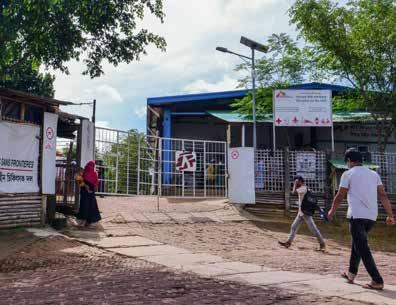
Our activities included intensive care, and treatment for patients with scabies and dengue.
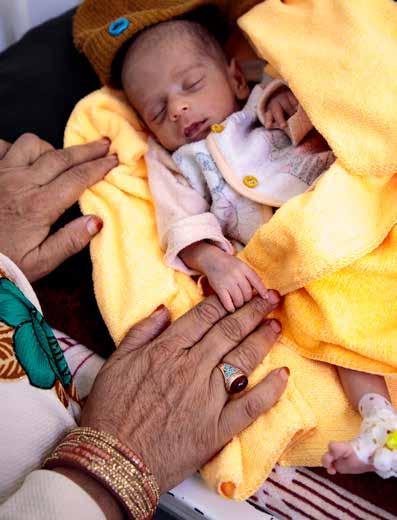
FUNDING NZD: $1,176,471
Chad experiences repeated epidemics and nutrition emergencies and has some of the world’s highest rates of child and maternal deaths. At Moïssala hospital, MSF worked with the Ministry of Health to improve maternal healthcare, and we provided paediatric services and therapeutic feeding.
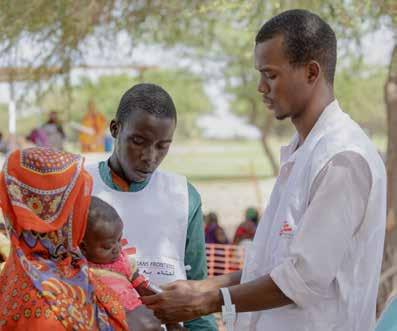
We also responded to an outbreak of yellow fever, supporting vaccinations and treatment.
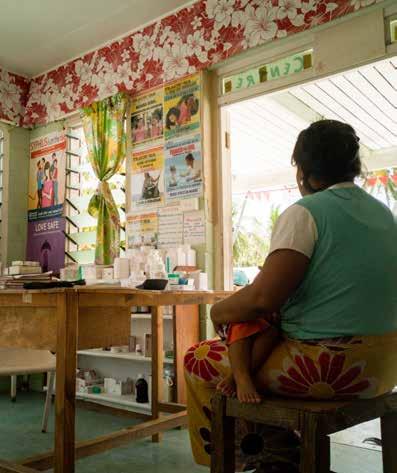
FUNDING NZD: $200,000
MSF worked to strengthen critical care capacity building, through provision of training to key healthcare workers and of critical care equipment. The project was then refined to focus on maternal and neonatal health, with support for local healthcare staff to improve management of non-communicable diseases such as diabetes during pregnancy, training and clinical support during labour and delivery, and training on neonatal resuscitation and newborn care skills.
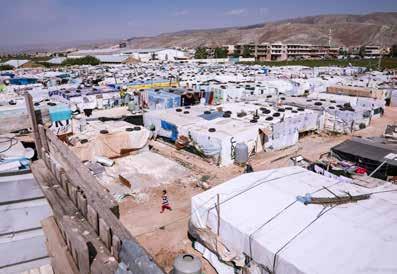
FUNDING NZD: $235,294
MSF supports the national health system to help address immense unmet medical needs in Lebanon, where a multi-layered crisis has pushed more than 80 per cent of people into poverty. In Zahle hospital, Bar Elias, we provided treatment for children living with thalassemia, an inherited blood disorder that affects the production of haemoglobin.
FUNDING NZD: $588,235
The mortality rate for women with cervical cancer in Malawi is among the highest in the world. In Blantyre, in collaboration with Malawian health authorities, MSF provided comprehensive care for women with cervical cancer with the aims of improving access to prevention, screening, diagnosis and treatment.
We operated screening units integrated in health centres in several districts of the Southern Region and treated patients at Queen Elizabeth Central Hospital in Blantyre. As radiotherapy is not yet available in Malawi, we facilitated treatment for some patients in Nairobi.

In Peshawar, MSF provided comprehensive emergency obstetric and neonatal care to address the needs of neglected communities in the area, such as Afghan refugees and internally displaced people, at our women’s hospital.
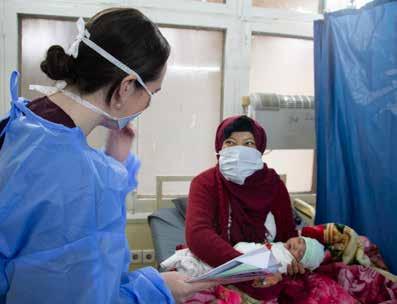
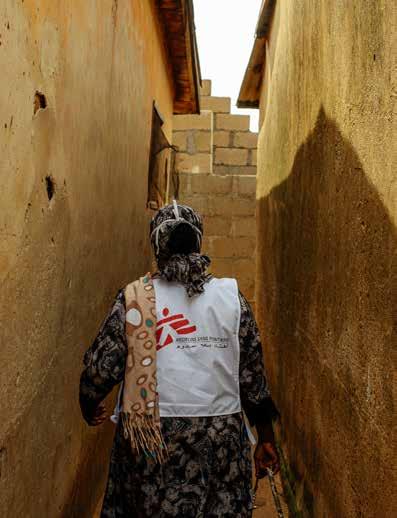
We closed the hospital at the end of 2022 after 11 years, having assisted more than 54,400 births during this time.
FUNDING NZD: $735,376
In Nigeria’s northeast and northwest regions, a combination of factors, including escalating violence, displacement, high food prices, climate change and epidemics, has contributed to a severe health and malnutrition crisis. In Bauchi state, Northeast Nigeria, we supported Kafin Madaki hospital with specialised paediatric healthcare, and launched emergency responses to malnutrition in Toro and to Lassa fever (an acute viral illness spread by rats) in Bauchi city.
FUNDING NZD: $800,000
There was a surge in fighting between fragmented armed groups in several states in Sudan in 2022, which displaced almost 400,000 people during the year.
According to United Nations estimates, more than three million people remained displaced across the country by the end of 2022, about 2.5 million of them in Darfur.
In West Darfur, we continued to run a range of medical services in the city of El-Geneina, including basic and emergency healthcare, sexual and reproductive healthcare, health promotion and laboratory support.

FUNDING NZD: $530,946
As full-scale war erupted, MSF increased activities to meet the many health needs. MSF provided medical and mental healthcare for people sheltering in the underground stations of Kharkiv, and ran mobile clinics in areas of southern Ukraine to provide support in areas retaken by the Ukrainian forces.

In coordination with the Ukrainian Interior Ministry and the Ministry of Health in Kyiv and Vinnytsia, we offered specialised physiotherapy, as well as psychological and psychiatric treatment, in two hospitals.
FUNDING NZD: $588,235
There are high needs within an unfolding humanitarian crisis in Yemen, including for lifesaving care for people injured in conflict and for responses to surging rates of malnutrition and preventable diseases.
In Kamir, Amran, our teams worked in the Ministry of Health-run Al Salam hospital to provide maternal and child healthcare, including treatment for malnutrition. We also provided COVID-19 care.

Médecins Sans Frontières New Zealand Charitable Trust
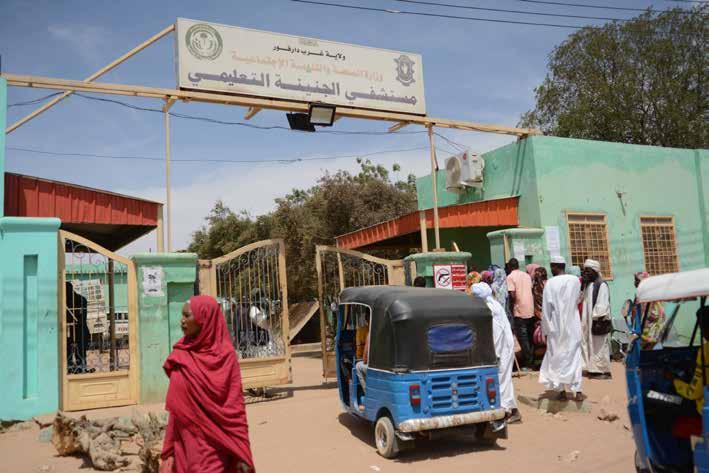
For the 12 months ended 31 December 2022
This Performance Report reflects operations for the year ended 31 December 2022 for the Médecins Sans Frontières New Zealand Charitable Trust (the Trust). The Trust is required to report under the Public Benefit Entity Standards Reduced Disclosure Regime (PBE Standards RDR) as a Tier 2 entity (having annual operating expenses greater than $2million and less than $30 million), with specific notes and disclosures required.
The Board of Trustees accepts responsibility for the preparation of the annual Statement of Service Performance, the Financial Statements and the judgements used in these financial statements.
Management accepts responsibility for establishing and maintaining policies and procedures and systems of internal controls designed to provide reasonable assurance as to the integrity and reliability of the Trust's financial reporting.
It is the opinion of the Board of Trustees and Management that the annual Financial Statements for the financial year ended 31 December 2022 fairly reflect the financial position and operations of the Trust.
The Trust's 2022 Performance Report is authorised for issue by the Board of Trustees. __________________________________________
Matthew Charles Reid TrusteeDate
Maurine Elizabeth Hilton-Thorp
Trustee27/06/23 27/06/23


To the Trustees of Medecins Sans Frontieres New Zealand Charitable Trust
Opinion
Crowe New Zealand Audit Partnership

Level 1, Findex House
57 Willis St, Wellington 6011
C/- Crowe Mail Centre Private Bag 90106
Invercargill 9840 New Zealand
Main +64 4 471 0006
Fax +64 4 566 6077
www.crowe.nz
We have audited the general purpose financial report of Medecins Sans Frontieres New Zealand Charitable Trust (the Trust) which comprise the financial statements on pages 23 to 36, and the service performance information on pages 20 to 22. The complete set of financial statements comprise the statement of financial position as at 30 June 2022, and the statement of comprehensive revenue and expenses, statement of changes in equity and statement of cash flows for the year then ended, and notes to the financial statements, including a summary of significant accounting policies
In our opinion, the accompanying general purpose financial report presents fairly, in all material respects:
▪ the financial position of the Trust as at 31 December 2022, and its financial performance and its cash flows for the year then ended; and
▪ the service performance of the Trust for the year ended 31 December 2022 in accordance with the entity’s service performance criteria
in accordance with Public Benefit Entity Accounting Standards Reduced Disclosure Regime issued by the New Zealand Accounting Standards Board.
We conducted our audit of the financial statements in accordance with International Standards on Auditing (New Zealand) (ISAs (NZ)) and the audit of the service performance information in accordance with the ISAs (NZ) and New Zealand Auditing Standard (NZ AS) 1 The Audit of Service Performance Information. Our responsibilities under those standards are further described in the Auditor’s Responsibilities for the Audit of the General Purpose Financial Report section of our report. We are independent of the Trust in accordance with Professional and Ethical Standard 1 International Code of Ethics for Assurance Practitioners (including International Independence Standards) (New Zealand) issued by the New Zealand Auditing and Assurance Standards Board, and we have fulfilled our other ethical responsibilities in accordance with these requirements. We believe that the audit evidence we have obtained is sufficient and appropriate to provide a basis for our opinion.
Other than in our capacity as auditor we have no relationship with, or interests in, the Trust Information Other Than the General Purpose Financial Report and Auditor’s Report
The Trustees are responsible for the other information. The other information comprises the information included in the Performance Report on pages 5 to 13, but does not include the general purpose financial report and our auditor’s report thereon.
Our opinion on the general purpose financial report does not cover the other information and we do not express any form of audit opinion or assurance conclusion thereon.
In connection with our audit of the general purpose financial report, our responsibility is to read the other information and, in doing so, consider whether the other information is materially inconsistent with the general purpose financial report or our knowledge obtained in the audit or otherwise appears to be materially misstated.
If, based on the work we have performed, we conclude that there is a material misstatement of this other information, we are required to report that fact. We have nothing to report in this regard.
Findex (Aust) Pty Ltd, trading as Crowe Australasia is a member of Crowe Global, a Swiss verein. Each member firm of Crowe Global is a separate and independent legal entity. Findex (Aust) Pty Ltd and its affiliates are not responsible or liable for any acts or omissions of Crowe Global or any other member of Crowe Global. Crowe Global does not render any professional services and does not have an ownership or partnership interest in Findex (Aust) Pty Ltd. Services are provided by Crowe New Zealand Audit Partnership an affiliate of Findex (Aust) Pty Ltd.
© 2023 Findex (Aust) Pty Ltd Page 17
The Trustees are responsible on behalf of the Trust for:
(a) the preparation and fair presentation of the financial statements and service performance information in accordance with Public Benefit Entity Accounting Standards Reduced Disclosure Regime issued by the New Zealand Accounting Standards Board;

(b) service performance criteria that are suitable in order to prepare service performance information in accordance with Public Benefit Entity Accounting Standards Reduced Disclosure Regime; and
(c) such internal control as the Trustees determine is necessary to enable the preparation of the financial statements and service performance information that are free from material misstatement, whether due to fraud or error.
In preparing the general purpose financial report, the Trustees are responsible for assessing the Trust’s ability to continue as a going concern, disclosing, as applicable, matters related to going concern and using the going concern basis of accounting unless the Trustees either intend to liquidate the Trust or to cease operations, or have no realistic alternative but to do so.
Our objectives are to obtain reasonable assurance about whether the financial statements as a whole and the service performance information are free from material misstatement, whether due to fraud or error, and to issue an auditor’s report that includes our opinion. Reasonable assurance is a high level of assurance, but is not a guarantee that an audit conducted in accordance with ISAs (NZ) and NZ AS 1 will always detect a material misstatement when it exists. Misstatements can arise from fraud or error and are considered material if, individually or in the aggregate, they could reasonably be expected to influence the decisions of users taken on the basis of this general purpose financial report
As part of an audit in accordance with ISAs (NZ) and NZ AS 1, we exercise professional judgement and maintain professional scepticism throughout the audit. We also:
▪ Identify and assess the risks of material misstatement of the financial statements and the service performance information, whether due to fraud or error, design and perform audit procedures responsive to those risks, and obtain audit evidence that is sufficient and appropriate to provide a basis for our opinion. The risk of not detecting a material misstatement resulting from fraud is higher than for one resulting from error, as fraud may involve collusion, forgery, intentional omissions, misrepresentations, or the override of internal control.
▪ Obtain an understanding of internal control relevant to the audit of the financial statements and the service performance information in order to design audit procedures that are appropriate in the circumstances, but not for the purpose of expressing an opinion on the effectiveness of the Trust’s internal control.
▪ Evaluate the appropriateness of accounting policies used and the reasonableness of accounting estimates and related disclosures made by management.
▪ Obtain an understanding of the process applied by the entity to select what and how to report its service performance.
▪ Evaluate whether the service performance criteria are suitable so as to result in service performance information that is in accordance with the Public Benefit Entity Accounting Standards Reduced Disclosure Regime.
▪ Conclude on the appropriateness of the use of the going concern basis of accounting by the Trustees and, based on the audit evidence obtained, whether a material uncertainty exists related to events or conditions that may cast significant doubt on the Trust's ability to continue as a going concern. If we conclude that a material uncertainty exists, we are required to draw attention in our auditor’s report to the related disclosures in the general purpose financial report or, if such disclosures are inadequate, to modify our opinion. Our conclusions are based on the audit evidence obtained up to the date of our auditor’s report. However, future events or conditions may cause the Trust to cease to continue as a going concern.
Evaluate the overall presentation, structure and content of thegeneral purpose financial report, including the disclosures, and whether the general purpose financial report representsthe underlying transactions , events and service performance information in a manner that achieves fair presentation.
We communicate with the Trustees regarding, among other matters, the planned scope and timing of the audit and significant audit findings, including any significant deficiencies in internal control that we identify during our audit.

This report is made solely to th e Trustees of the Trust, as a body. Our audit has been undertaken so that we might state to the Trusteesthose matters we are required to state to them in an auditor's report and for no other purpose. To the fullest extent permitted by law, we do not accept or assume responsibility to anyone other than the Trustees as a body, for our audit work, for this report, or for the opinions we have formed.
Dated at Aucklandthis 27thday of June2023
The

title ‘Partner’ conveys that the person is a senior member within their respective division and is among the group of per sons who hold an equity interest (shareholder) in its parent entity, Findex Group Limited. The only professional service offering which is conducted by a partnership is external audit, conducted via the Crowe Australasia external audit division and Unison SMSF Audit. All other professional services offered by Findex Group Limited are conducted by a privately owned organisation and/or its subsidiaries.
The Trust's short and long-term objectives:
Continue to deliver our core medical humanitarian work by:
Raising funds to build sustainable financial health of the trust, so that we can provide funds for the purpose of delivering care to patients, promoting the development of health infrastructure, training of medical staff and promotion of health in developing countries to people affected by conflict, epidemics, disasters or exclusion from healthcare.
Speaking out and advocating for and with our patients, bearing witness to their needs and inspiring support in our social mission.
The Trust's strategy for achieving these objectives:
Developing our working practice to respond flexibly and effectively to our patient's needs. Our approach is focused around two themes:
Putting patients first: championing patient-centered care in all the projects in which we work, focusing our communications around a patient-centered narrative, and supporting regional partnerships which are patient-centered, environmentally responsible, locally relevant and more efficient.
Engaging our communities: shifting our communications approach to improve our engagement with our audiences, continuing to provide excellent donor care and employing new technologies and ways of working to ensure we are prepared for the future.
The principal activities of the Trust during the financial year to 31 December 2022 have been:
Fundraising from the New Zealand general public in order to finance the medical humanitarian operations of the Médecins Sans Frontières International entities.
Operational participation in medical humanitarian projects, through financing operations.
Engaging with communities in the form of dissemination of public information on humanitarian issues; provision of materials and spokespeople to journalists in the print and electronic media and publication of newsletters.
The Trust measures performance through the establishment and monitoring of benchmarks including:
Compliance with all regulatory requirements;
Year on year income growth meeting the needs of the organisation to fund operations;
Proportion of financial resource spend across social mission and administrative costs within an appropriate range;
Growth in engagement - communications, awareness raising and advocacy to inspire support for our patients' needs; and
Target a minimum of three months of reserves (against annual expenses).
The performance against these key performance indicators is as follows:
No compliance issues have been flagged;
Revenue from donations and bequests in 2022 increased by 45 per cent;
Funds to the field projects in 2022 increased by 43 per cent and are 74 per cent of fundraising revenue;
Total of eighteen media interviews secured in 2022 compared to six in 2021; and
Reserves of five months achieved (against annual expenses).
For the year ended 31 December 2022
Deficit for the year from continuing operation
The above statement of comprehensive revenue and expenses should be read in conjunction with the accompanying notes.
As at 31 December 2022
The above statement of financial position should be read in conjunction with the accompanying notes. Page 24
For
The above statement of changes in equity should be read in conjunction with the accompanying notes.
The above statement of cash flows should be read in conjunction with the accompanying notes.
For the year ended 31 December 2022
1 . C o r p o r a t e I n f o r m a t i o n T h e f i n a n c i a l s t a t e m e n t o f M é d e c i n s S a n s F r o n t i è r e s N e w Z e a l a n d C h a r i t a b l e T r u s t ( t h e T r u s t) f o r t h e y e a r e n d e d 3 1 D e c e m b e r 2022 w e r e a u t h o r i s e d f o r i s s u e i n a c c o r d a n c e w i t h a r e s o l u t i o n o f t r u s t e e s .
T h e T r u s t w a s c r e a t e d u n d e r a d e e d o f t r u s t a n d i n c o r p o r a t e d u n d e r t h e C h a r i t a b l e T r u s t s A c t 19 57 a n d r e g i s t e r e d u n d e r t h e C h a r i t i e s A c t 200 5 o n 17 M a r c h 20 16 .
T h e T r u s t d o m i c i l e d i n N e w Z e a l a n d a n d w a s e s t a b l i s h e d t o r a i s e f u n d s f o r t h e p u r p o s e o f p r o m o t i n g t h e d e v e l o p m e n t o f h e a l t h i n f r a s t r u c t u r e , t r a i n i n g o f m e d i c a l s t a f f a n d p r o m o t i o n o f h e a l t h i n d e v e l o p i n g c o u n t r i e s .
T h e T r u s t w a s i n c o r p o r a t e d u n d e r t h e C h a r i t a b l e T r u s t s A c t 19 57 o n 9 M a r c h 20 16 a n d c o m m e n c e d o p e r a t i o n s d u r i n g A p r i l 20 17 .
R e l a t e d P a r t y S u p p o r t T h e f i n a n c i a l r e p o r t h a s b e e n p r e p a r e d o n a g o i n g c o n c e r n b a s i s , w h i c h c o n t e m p l a t e s c o n t i n u i t y o f n o r m a l b u s i n e s s a c t i v i t i e s a n d r e a l i s a t i o n o f a s s e t s a n d s e t t l e m e n t o f l i a b i l i t i e s i n t h e o r d i n a r y c o u r s e o f b u s i n e s s
I n m a k i n g t h i s a s s e s s m e n t , t h e T r u s t e e s h a v e c o n s i d e r e d t h e c o m m i t m e n t o f M é d e c i n s S a n s F r o n t i è r e s A u s t r a l i a L i m i t e d t h a t i t w i l l c o n t i n u e t o p r o v i d e f i n a n c i a l s u p p o r t t o e n s u r e t h e T r u s t i s a b l e t o m e e t s i t s d e b t s a n d w h e n t h e y f a l l d u e .
2 . S u m m a r y o f s i g n i f i c a n t a c c o u n t i n g p o l i c i e s
a) B a s i s o f p r e p a r a t i o n
T h e f i n a n c i a l s t a t e m e n t s h a v e b e e n p r e p a r e d i n a c c o r d a n c e w i t h t h e C h a r i t i e s A c t 200 5 w h i c h r e q u i r e c o m p l i a n c e w i t h g e n e r a l l y a c c e p t e d a c c o u n t i n g p r a c t i c e i n N e w Z e a l a n d ( N Z G A A P) . F o r t h e p u r p o s e o f c o m p l y i n g w i t h N Z G A A P t h e T r u s t i s a p u b l i c b e n e f i t e n t i t y ( P B E) a s i t s o b j e c t i v e i s t o p r o v i d e g o o d s o r s e r v i c e s f o r c o m m u n i t y o r s o c i a l b e n e f i t s r a t h e r t h a n m a k i n g a f i n a n c i a l r e t u r n .
T h e T r u s t h a s e l e c t e d t o r e p o r t i n a c c o r d a n c e w i t h T i e r 2 P B E S t a n d a r d s R e d u c e d D i s c l o s u r e R e g i m e (“ P B E S t a n d a r d s R D R”) a s i t i s n o t p u b l i c l y a c c o u n t a b l e a n d i s n o t l a r g e
T h e f i n a n c i a l s t a t e m e n t s a r e p r e s e n t e d i n t h e T r u s t ’ s f u n c t i o n a l c u r r e n c y , N e w Z e a l a n d d o l l a r s , a n d a l l v a l u e s a r e r o u n d e d t o t h e n e a r e s t d o l l a r u n l e s s s t a t e d o t h e r w i s e .
Mé d e c i n s S a n s F r o n t iè r e s N e w Z e a l a n d C h a r i t a b l e T r u s t
b) S t a t e m e n t o f C o m p l i a n c e T h e f i n a n c i a l s t a t e m e n t s h a v e b e e n p r e p a r e d i n a c c o r d a n c e w i t h P B E S t a n d a r d s
R D R
c) F o r e i g n c u r r e n c y t r a n s l a t i o n T r a n s a c t i o n s i n f o r e i g n c u r r e n c i e s a r e i n i t i a l l y r e c o r d e d i n t h e f u n c t i o n a l c u r r e n c y b y a p p l y i n g t h e e x c h a n g e r a t e s r u l i n g a t t h e d a t e o f t h e t r a n s a c t i o n . F o r e i g n e x c h a n g e g a i n s a n d l o s s e s r e s u l t i n g f r o m t h e s e t t l e m e n t o f s u c h t r a n s a c t i o n s a n d f r o m t h e t r a n s l a t i o n a t y e a r - e n d e x c h a n g e r a t e s o f m o n e t a r y a s s e t s a n d l i a b i l i t i e s d e n o m i n a t e d i n f o r e i g n c u r r e n c i e s a r e r e c o g n i s e d i n r e v e n u e a n d e x p e n s e s
d) I n t a n g i b l e a s s e t s I n t a n g i b l e a s s e t s a c q u i r e d a r e i n i t i a l l y m e a s u r e d a t c o s t F o l l o w i n g i n i t i a l r e c o g n i t i o n , i n t a n g i b l e a s s e t s a r e c a r r i e d a t c o s t l e s s a n y a c c u m u l a t e d a m o r t i s a t i o n a n d i m p a i r m e n t l o s s e s
The useful lives of intangible assets are assessed to be either finite or indefinite. Intangible assets with finite lives are amortised over the useful life and tested for impairment whenever there is an indication that the intangible asset may be impaired. The amortisation period and the amortisation method for an intangible asset with a finite useful life is reviewed at least at each balance date. Changes in the expected useful life are accounted for prospectively by changing the amortisation period or method, as appropriate. The amortisation expense on intangible assets with finite lives is recognised in revenue and expenses in the expense category consistent with the function of the intangible asset.
A s u m m a r y o f t h e p o l i c i e s a p p l i e d t o i n t a n g i b l e a s s e t s i s a s f o l l o w s:
- S o f t w a r e – f i n i t e , a m o r t i s e d o n a s t r a i g h t - l i n e b a s i s o v e r 3 y e a r s
G a i n s o r l o s s e s a r i s i n g f r o m d e r e c o g n i t i o n o f a n i n t a n g i b l e a s s e t a r e m e a s u r e d a s t h e d i f f e r e n c e b e t w e e n t h e n e t d i s p o s a l p r o c e e d s a n d t h e c a r r y i n g a m o u n t o f t h e a s s e t a n d a r e r e c o g n i s e d i n r e v e n u e a n d e x p e n s e s w h e n t h e a s s e t i s d e r e c o g n i s e d .
e) I m p a i r m e n t o f n o n - f i n a n c i a l a s s e t s I n t a n g i b l e a s s e t s w i t h a n i n d e f i n i t e u s e f u l l i f e a r e n o t s u b j e c t t o a m o r t i s a t i o n a n d a r e t e s t e d a n n u a l l y f o r i m p a i r m e n t I n t a n g i b l e a s s e t s s u b j e c t t o a m o r t i s a t i o n a n d a l l o t h e r n o n - f i n a n c i a l a s s e t s a r e r e v i e w e d f o r i m p a i r m e n t w h e n e v e n t s o r c h a n g e s i n c i r c u m s t a n c e s i n d i c a t e t h e c a r r y i n g v a l u e m a y n o t b e r e c o v e r a b l e . T h e r e c o v e r a b l e a m o u n t s a r e t h e h i g h e r o f a n a s s e t ’ s f a i r v a l u e , l e s s c o s t s t o s e l l a n d v a l u e i n u s e .
I f a n y s u c h i n d i c a t i o n e x i s t s a n d w h e r e t h e c a r r y i n g v a l u e s e x c e e d t h e e s t i m a t e d r e c o v e r a b l e a m o u n t , t h e a s s e t s a r e w r i t t e n d o w n d o t h e i r r e c o v e r a b l e a m o u n t
Mé d e c i n s S a n s F r o n t iè r e s N e w Z e a l a n d C h a r i t a b l e T r u s t
f) F i n a n c i a l i n s t r u m e n t s A l l f i n a n c i a l i n s t r u m e n t s a r e i n i t i a l l y r e c o g n i s e d a t t h e f a i r v a l u e o f t h e c o n s i d e r a t i o n r e c e i v e d / t r a n s f e r r e d l e s s , i n t h e c a s e o f f i n a n c i a l a s s e t s a n d l i a b i l i t i e s n o t r e c o r d e d a t f a i r v a l u e t h r o u g h r e v e n u e a n d e x p e n s e s , d i r e c t l y a t t r i b u t a b l e t r a n s a c t i o n c o s t s . S u b s e q u e n t l y t h e T r u s t a p p l i e d t h e f o l l o w i n g a c c o u n t i n g p o l i c i e s f o r f i n a n c i a l i n s t r u m e n t s
C a s h a n d c a s h e q u i v a l e n t s C a s h a n d c a s h e q u i v a l e n t s c o m p r i s e c a s h a t b a n k a n d i n h a n d a n d s h o r t - t e r m d e p o s i t s w i t h a n o r i g i n a l m a t u r i t y o f t h r e e m o n t h s o r l e s s t h a t a r e r e a d i l y c o n v e r t i b l e t o k n o w n a m o u n t s o f c a s h a n d w h i c h a r e s u b j e c t
Trade payables and other payables are recognised when the Trust becomes obliged to make future payments resulting from the purchase of goods and services. The amounts are unsecured and usually paid within 30 days of recognition. Trade payables are not discounted given their short-term nature.
The Trust recognises a loss allowance for expected credit losses on financial assets which are either measured at amortised cost or fair value through other comprehensive income. The measurement of the loss allowance depends upon the Trust's assessment at the end of each reporting period as to whether the financial instrument's credit risk has increased significantly since initial recognition, based on reasonable and supportable information that is available, without undue cost or effort to obtain.
Where there has not been a significant increase in exposure to credit risk since initial recognition, a 12-month expected credit loss allowance is estimated. This represents a portion of the asset's lifetime expected credit losses that is attributable to a default event that is possible within the next 12 months. Where a financial asset has become credit impaired or where it is determined that credit risk has increased significantly, the loss allowance is based on the asset's lifetime expected credit losses. The amount of expected credit loss recognised is measured on the basis of the probability weighted present value of anticipated cash shortfalls over the life of the instrument discounted at the original effective interest rate.
For financial assets mandatorily measured at fair value through other comprehensive income, the loss allowance is recognised in other comprehensive income with a corresponding expense through profit or loss. In all other cases, the loss allowance reduced the asset's carrying value with a corresponding expense through a profit or loss.
Revenue is recognised and measured at the fair value of the consideration received or receivable to the extent it is probable that the economic benefits will flow to the Trust and the revenue can be reliably measured.
Donations
Donations collected, including cash and goods for resale, are recognised as revenue when the Trust gains control, economic benefits are probable, and the amount of the donation can be measured reliably.
Legacies & Bequests
Legacies and Bequests are recognised when received.
Donations-in-kind and voluntary assistance
Donations-in-kind for items received and/or services provided at discount are recorded at the fair value of the items or services received, where identifiable.
Voluntary assistance may be provided to the Trust by office volunteers. The time donated by office volunteers are not recognised as the revenue received, and services provided, cannot be accurately measured but estimated only.
Revenues, expenses and assets are recognised net of GST except: -when the GST incurred is not recoverable from the taxation authority; and -receivables and payables, which are stated with the amount of GST included.
The Trust is a registered charity under the Charities Act 2005 and is therefore exempt from income tax.
The preparation of the Trust’s financial statements requires management to make judgements, estimates and assumptions which effect the reported revenues, expenses, assets and liabilities and the accompanying disclosures. Uncertainty about these assumptions and estimates could result in outcomes that may require a material adjustment to the carrying amount of assets or liabilities in future periods.
For the year ended31 December 2022
Net deficit for the year includes the following expenses:
For the year ended 31 December 2022
7 Related Parties
The Trust was established to give effect to the charitable purposes (Note 1) and to represent Médecins Sans Frontières in New Zealand.
During the year the Trust provided services and supported the field operations of Médecins Sans Frontières International entities.
During the year, Médecins Sans Frontières Australia Limited (MSFA) contributed $5,269,848 of settled equity as shown in the statement of changes in equity on page 21 (2021: $2,408,902). This consists of the following:
A cash contribution of $3,863,561 (2021:$1,000,000). This has been reflected in the increase in equity, as agreed by the Trustees and documented in the Policy Paper "Funding of MSFNZ by MSFA"; and
The recharge of administrative support and payment of other expenses from MSFA to MSFNZ of $1,406,287 (2021:$1,408,902). From 1 January 2019, all administrative support including payment of other expenses provided by MSFA to MSFNZ is treated as an equity contribution rather than a loan on the bases that there is no obligation for MSFNZ to repay these amounts.
For the year ended 31 December 2022
Terms and conditions of transactions with related parties
Sales to, and purchases from, related parties are recorded on normal commercial terms. Outstanding balances at year end are unsecured and settlement occurs in cash or netting.
For the year ended 31 December 2022, the Trust has not made any allowance for impairment loss relating to amounts owed to related parties (2021:$nil).
Key management and trustees remuneration
Key management and trustees are not remunerated by the Trust. Key management are employees of a related party.
Subsequent events after balance date
There has not been any matter or circumstances that has arisen since the end of of the financial year that has significantly affected, or may significantly affect, the operations of the Trust, the results of those operations, or the state of affairs of the Trust in future financial years.
Capital Commitments
There were no capital commitments at 31 December 2022 (2021:$nil)
Commitments and Contingencies
The Trust has no other commitments and contingencies at 31 December 2022 (2021:$nil)
For the year ended 31 December 2022
The followingdisclosure has been made to satisfy the requirements of the Tier 2 PBE accounting standards. Non-monetary income and expenses are disclosed separately, unlike theIncome Statement where they are included in the relevant income or cost line.
Shortfall of revenue over expenses
For the year ended 31 December 2022
9Detailed Income Statement for the year ended 31 December 2022 (con't)
The followingmethods and cost were employed in fundraising:
*Electronic includes internet communications, e-mail, mobile telephone communications, text messaging, television and radio.
Preparing to distribute the highly nutritious nut-based paste, Plumpy’Nut, in Chad. The sachets are used to treat acute malnutrition.

msf.org.nz
facebook.com/MSFANZ
@MSFAustralia
©Djerabe Ndegrgar